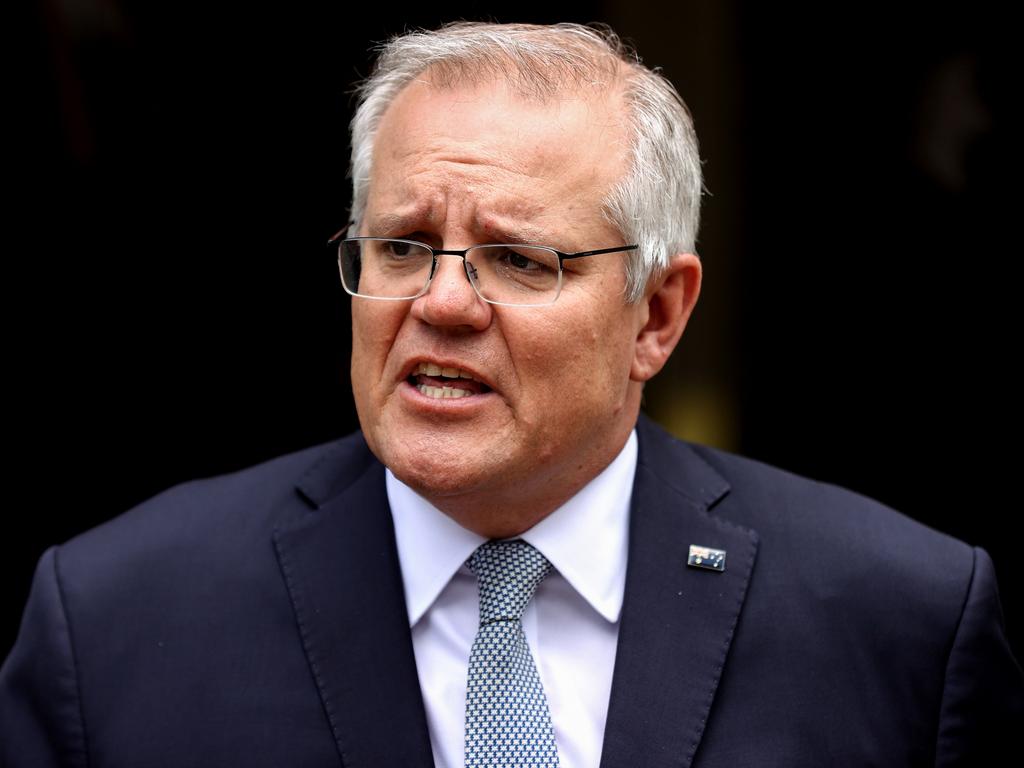Scott Morrison and Anthony Albanese show net-zero unity inanity


Labor has for many years accepted the idea, fashionable in some strategic circles, that climate change can cause political unrest in the South Pacific, or low-lying parts of Southeast Asia, through flooding and the like, as well as having direct impacts on the Australian continent. Therefore Australia should tackle climate change urgently for national security reasons.
The first part of Labor’s policy syllogism is defensible enough, but the second is nonsense. Whether Australia reaches net zero by 2050 or 2060, whether it reduces emissions by, say, a further 8 per cent or a further 5 per cent in a given period, will have absolutely zero effect on global climate change. This is especially the case given many of our emissions reductions involve ceasing activities that will then be taken up by other nations with slacker environmental safeguards.
But Morrison’s equation – that effective membership of the Western alliance now requires a commitment to net zero by 2050 – is equally unconvincing. If there was a quid pro quo for AUKUS, it had nothing to do with joining future US military campaigns and everything to do with giving Joe Biden and Boris Johnson a triumphant media moment at Glasgow. This is just the sort of nonsense Barack Obama tried to sell to Tony Abbott.
Canada is an intimate member of the Western alliance and its carbon emissions have barely moved. Japan is a key member of the alliance and it’s still building new coal-fired power stations. India, a critical member of the Quadrilateral Security Dialogue, is even more committed to coal.
The difference between Australia making a formal commitment to net zero by 2050 and just continuing with current plans is extremely slight.
We will certainly be well advised to buy any carbon offsets our friends in the South Pacific may be selling. International trading in carbon offsets is extremely ropy, often corrupt and based on hypotheticals piled on fictions. Last time this was tried, Western nations were paying huge amounts of money to Chinese factories not to do things they only ever said they were going to do in order to attract carbon offsets sales.
There’s no reason to think it will be any different this time. Nonetheless we should spend what is effectively aid money on the South Pacific and whatever schemes it participates in.
Finally, Morrison makes a powerful argument when he says progress to net zero cannot be linear because it depends on technology that doesn’t yet exist, doesn’t yet work or is not yet affordable.
We should invest heavily in green technology and hope it works out. But by definition, technology that does not yet exist cannot be part of a precise plan or timeline.
Morrison’s old formulation – net zero, through technology, as soon as possible and preferably by 2050 – was actually 100 per cent right. So long as he’s just changing the form of words, net zero by 2050 can possibly be a beneficial fiction.






Scott Morrison and Anthony Albanese are now on a unity ticket holding that the net-zero emissions by 2050 commitment is a national security issue. The problem is they mean opposite things. And they’re both wildly exaggerating, if not flat-out wrong.